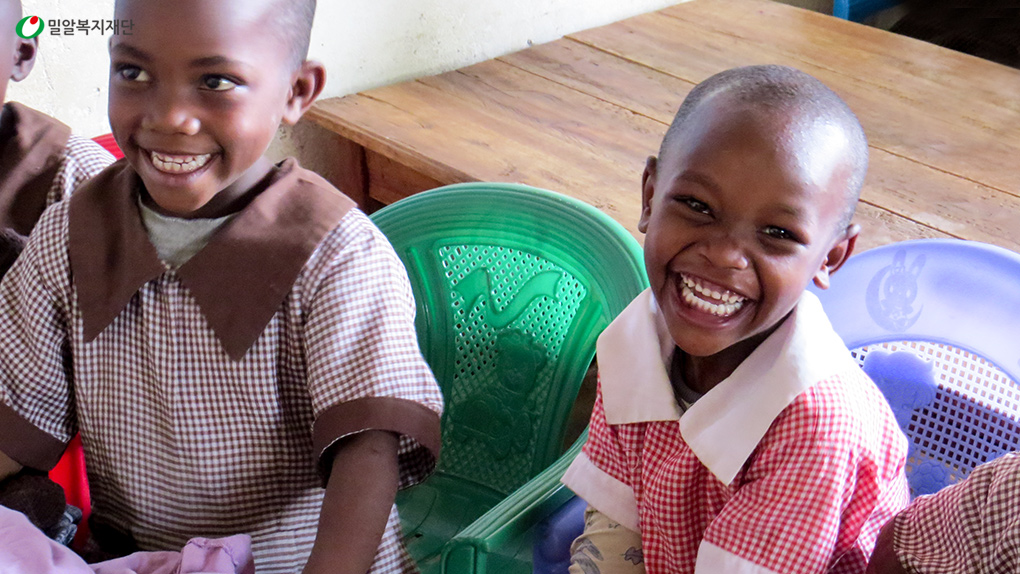Our story
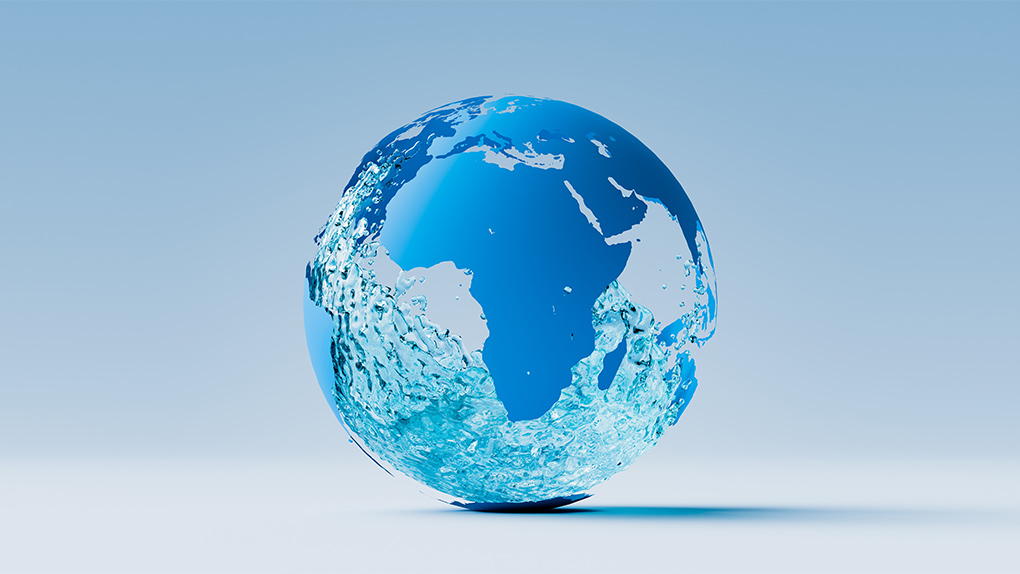
March 22 is designated by the United Nations as World Water Day. In particular, the UN has selected glacier preservation as the theme for 2025 and declared March 21 each year as World Glacier Day. This highlights how rapidly melting glaciers caused by climate change are contributing to severe natural disasters such as floods, droughts, and landslides - and leading to critical water shortages.
Due to this climate crisis, many people across Africa now face threats to their very survival.
Miral Welfare Foundation is shedding light on the struggles of communities in Marsabit, Kenya, who are suffering from extreme drought, and raising awareness about our emergency response efforts to support them.
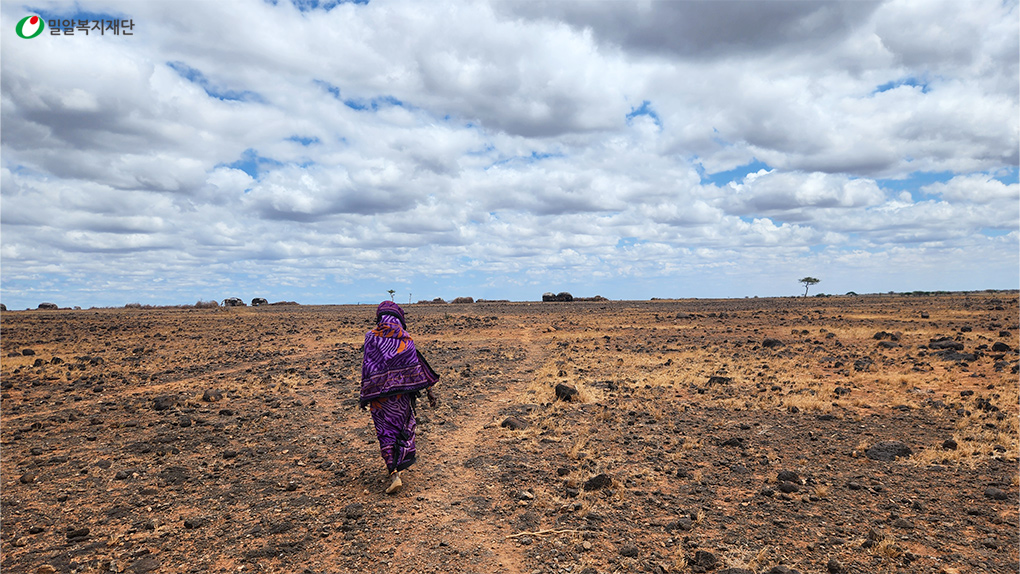
Marsabit, a region in northern Kenya
Climate Change Threatens Africa
Africa has been hit hard by climate change. The El Nino phenomenon has caused prolonged and severe droughts in some areas, while others have experienced heavy rains and devastating floods that destroyed crops.
In 2021, the Kenya government even declared a national emergency due to drought conditions. In 2024, severe flooding occurred across much of East Africa.
El Nino phenomenon: A climate pattern in which sea surface temperatures in the tropical eastern Pacific Ocean become warmer than average.
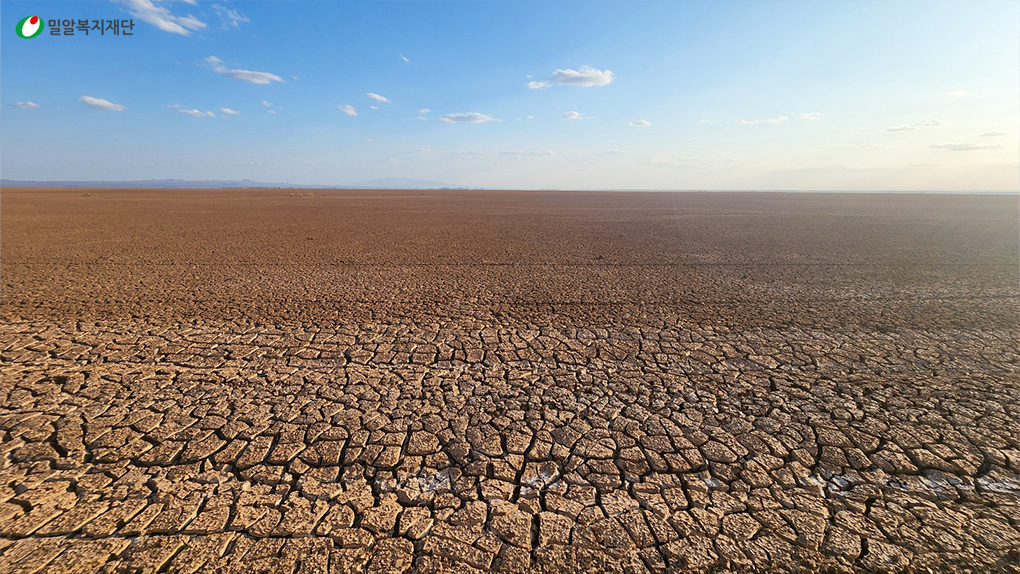
The drought-stricken land of Marsabit, Kenya
Climate change is especially devastating for those who live close to nature.
In Marsabit, a dry region in northern Kenya, people have traditionally lived as nomads - sleeping on the ground, resting under the shade of trees, and moving with their livestock in search of green pastures. They are among the most vulnerable victims of water shortages caused by climate change.
Since the onset of a severe drought in 2020, the region has seen little rainfall. As the grasslands - essential for feeding their livestock - dried up, about 90% of their animals perished.
The local people, who rely heavily on meat and milk from their livestock, are now facing a serious food crisis. More than 20% of the population in Kenya's arid regions has reached IPC Phase 3 - a stage of acute food insecurity. This means that one in five people is suffering from severe malnutrition.
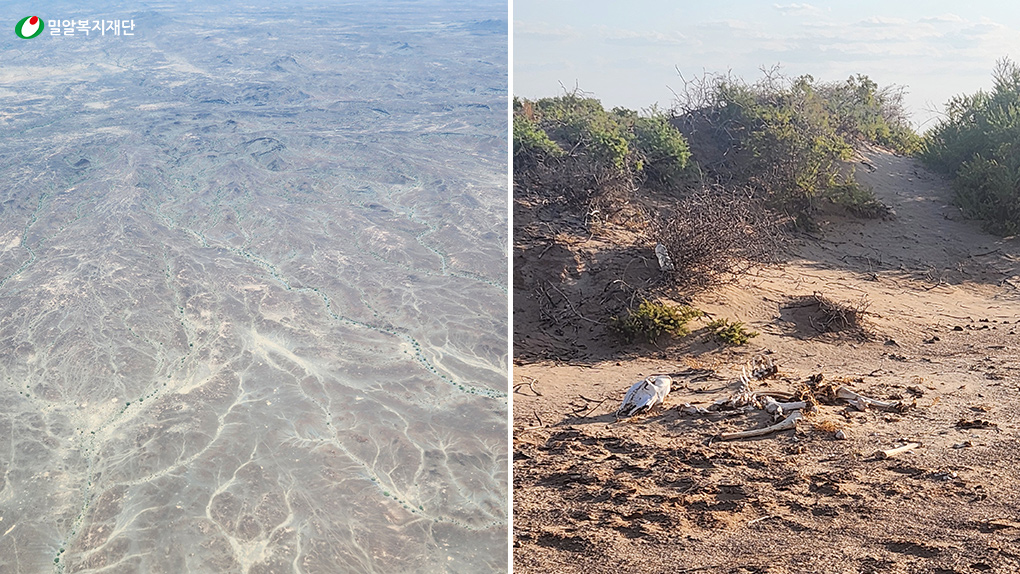
A Daily Life Transformed by Drought and Malnutrition
The drought and food crisis in Kenya’s Marsabit region have had devastating effects, especially on vulnerable groups such as children and women - including pregnant and breastfeeding mothers.
About 20% of children under the age of five are suffering from acute malnutrition. In many cases, breastfeeding mothers are unable to produce milk due to undernourishment, putting even newborns at serious risk.
This crisis also affects children's education and safety. Some children, driven by hunger and lack of nutrition, are forced to leave school and search for work - only to end up in dangerous situations or tragic accidents.
Children who should be protected at home and in school are now facing growing threats to their very survival.
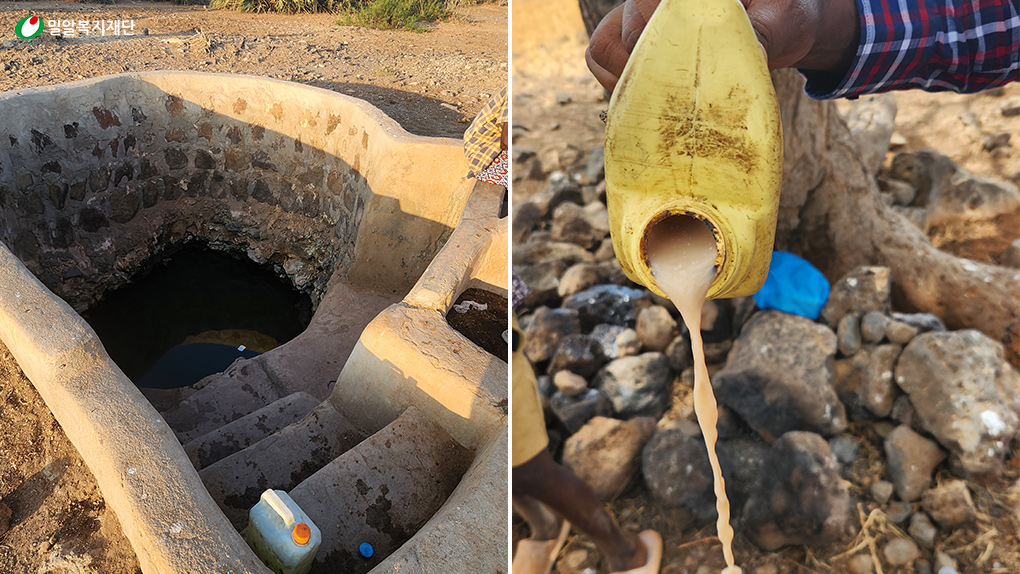
(Left) A dried-up well due to drought / (Right) Water mixed with milk, taken in place of a meal
With the mass death of livestock, local residents have faced a serious livelihood crisis. Many now search dry trees for wild fruits to survive, and when that fails, they boil tea to replace meals.
Due to the prolonged drought, most residents rely on untreated groundwater for their daily water needs. This water is high in salinity and lacks proper sanitation, making it unfit for drinking. However, for the people of Marsabit, there is no viable alternative - except for rainwater.
Nutrition and Water Support
Recognizing the severe drought conditions in Kenya’s Marsabit region, Miral Welfare Foundation has been implementing an emergency nutrition and water support program since January 2025.
The program first focuses on the most critically affected and underserved areas, where population surveys are conducted to identify children under the age of five suffering from acute malnutrition, as well as vulnerable women such as pregnant and breastfeeding mothers. Emergency nutritional food is provided to these groups to support the development of children during their growth stages and to ensure adequate nutrition for vulnerable women.
In addition, rainwater harvesting tanks are being installed in areas struggling with water shortages, allowing communities to collect and store rainwater for agricultural and drinking purposes. During periods of extreme drought, water tanks will also be installed to improve access to clean water for residents.
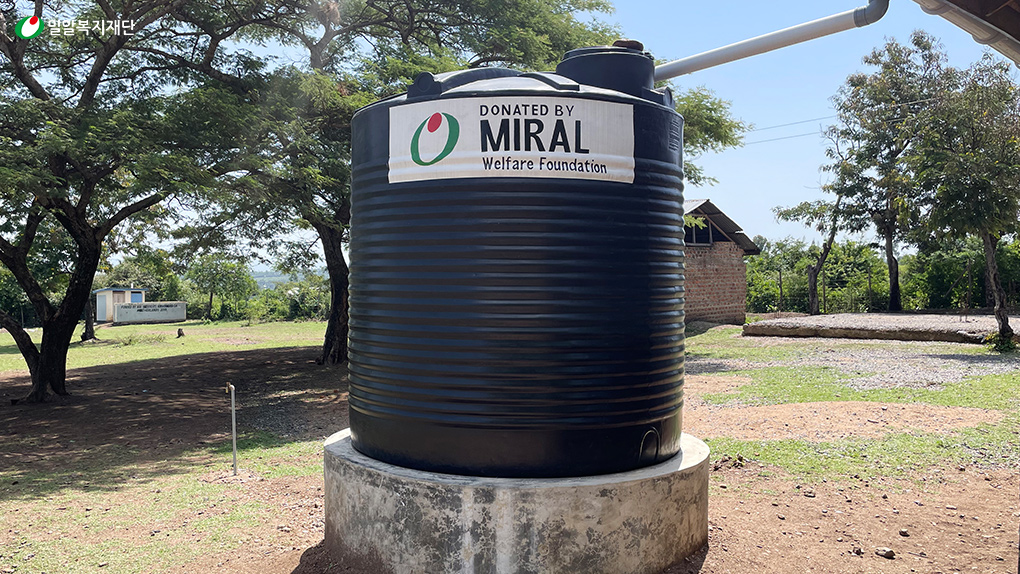
A water tank installed in Kisumu, Kenya through the 2022 overseas water project (photo for reference)
As part of long-term efforts to encourage school attendance, Miral Welfare Foundation provides tuition and nutritional support to four schools in the Marsabit region.
As families struggle to make a living, many children are forced to drop out of school due to the burden of tuition fees. This has put schools - previously serving not only as places of learning but also as safe spaces for child protection, care, and school meals - at risk of collapse.
To address this issue, the program offers tuition subsidies and school meals to reduce the financial burden on families and help children return to school.
In addition, school gardens (growing maize, beans, etc.) and small-scale poultry farms are being established to help schools produce high-quality protein and nutrients on their own.
During school breaks, families will also receive home gardening kits - including seeds and soil - so they can continue growing food at home.
Though miles apart, we stand close with the people of Kenya
In Kenya’s Marsabit region, drought and hunger repeat year after year yet help has rarely reached those in need.
Miral Welfare Foundation continues its support efforts in Marsabit, Kenya, to reach the most vulnerable and stand alongside them. We kindly ask for your continued interest and support so that we may carry on this journey together.
